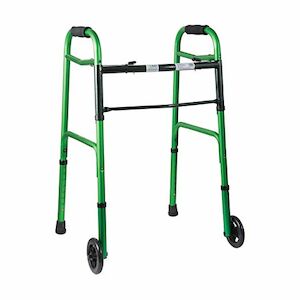When it comes to healthcare, there's an aspect that often works quietly in the background but is vital to many patients' daily lives—Durable Medical Equipment (DME). Whether it's a wheelchair or a home oxygen concentrator, DME plays a crucial role in aiding recovery, enhancing quality of life, and ensuring ongoing care for those with medical needs. Understanding DME is essential for patients, caregivers, and healthcare providers alike.
What is Durable Medical Equipment?
The Centers for Medicare & Medicaid Services (CMS) defines Durable Medical Equipment as equipment that can withstand repeated use, primarily serves a medical purpose, is not useful in the absence of illness or injury, and is appropriate for use in the home. This can range from simple canes to more complex machinery like ventilators.
Types of Durable Medical Equipment
- Mobility Aids: These include crutches, walkers, wheelchairs, and scooters, designed to assist those with mobility issues.
- Home Care Equipment: Hospital beds, bariatric equipment, and patient lifts fall into this category, aiding in home care for patients.
- Oxygen Delivery Systems: This includes oxygen concentrators, tanks, and related supplies.
- Diabetic Supplies: Blood glucose monitors and insulin pumps are considered DME when they are required for a patient's diabetes management.
- Sleep Apnea Equipment: CPAP devices are widely used by patients with sleep apnea to maintain a steady breath while sleeping.

Coverage of DME: Understanding Medicare Guidelines
Medicare Part B covers a portion of the rental or purchase of DME as long as the equipment is prescribed by a doctor for use in the home and the supplier is Medicare-approved. There's a common misconception that Medicare will cover all costs related to DME; however, typically, Medicare will cover 80% of the Medicare-approved amount after the Part B deductible is met, leaving the remaining 20% to be paid out-of-pocket or by secondary insurance.
It's important for patients to understand that not all equipment is covered equally. For instance, items like raised toilet seats may not be covered, as they aren't considered medical necessities by Medicare standards.
The Importance of DME for Patients
DME extends the care from the hospital to the home. For individuals with chronic conditions, disabilities, or those recovering from surgeries, DME is a part of their daily lives. It allows many to maintain independence, manage pain, prevent complications, and live comfortably in their own homes.
For instance, a proper diabetic management plan often requires the regular monitoring of blood sugar levels, which is made possible through glucose meters, a type of DME. Without this, patients would face frequent hospital visits just for monitoring purposes.
Choosing the Right DME
Selecting the right DME involves a combination of doctor's advice, personal needs, and understanding of the equipment. It's important to:
- Consult Healthcare Providers: Physicians and therapists can assess the patient's home environment, mobility level, and overall health to suggest the most suitable equipment.
- Understand the Features: Equipment comes with various features. Knowing what each device offers can help in making an informed decision.
- Consider the Space: The equipment must fit and function well within the patient’s living space.
- Plan for the Future: The chosen DME should be adaptable to the patient’s changing needs over time.
Maintaining DME
Proper maintenance of DME is critical for safety and longevity. Regular cleaning, following manufacturer guidelines, and scheduling maintenance checks are all part of the upkeep. For instance, a CPAP machine requires regular cleaning to prevent bacteria build-up, and wheelchair tires need to be checked for wear and tear.
Renting vs. Buying DME
The decision to rent or buy can depend on the expected duration of need. Renting may be more cost-effective for short-term use, while purchasing might be better for long-term needs. Medicare's coverage of rental versus purchase can influence this decision as well.
Conclusion
Durable Medical Equipment is more than just hardware; it's a key component of health management for many individuals. Understanding the nuances of DME—from the types available to Medicare coverage and maintenance—is critical. It empowers patients and caregivers to make informed decisions, fostering better health outcomes and facilitating independence at home.
For those navigating the complexities of DME for the first time, the journey starts with gaining knowledge. And for healthcare professionals, it's about providing that guidance. As we continue to see advancements in medical technology, the role of DME in patient care will only grow, emphasizing the need for clear information and accessible resources.
For more detailed information on Medicare's coverage of DME, consult the official Medicare guidelines or speak with a healthcare professional who can provide personalized advice based on your specific circumstances. Remember, the right equipment can make all the difference in a patient's quality of life.

